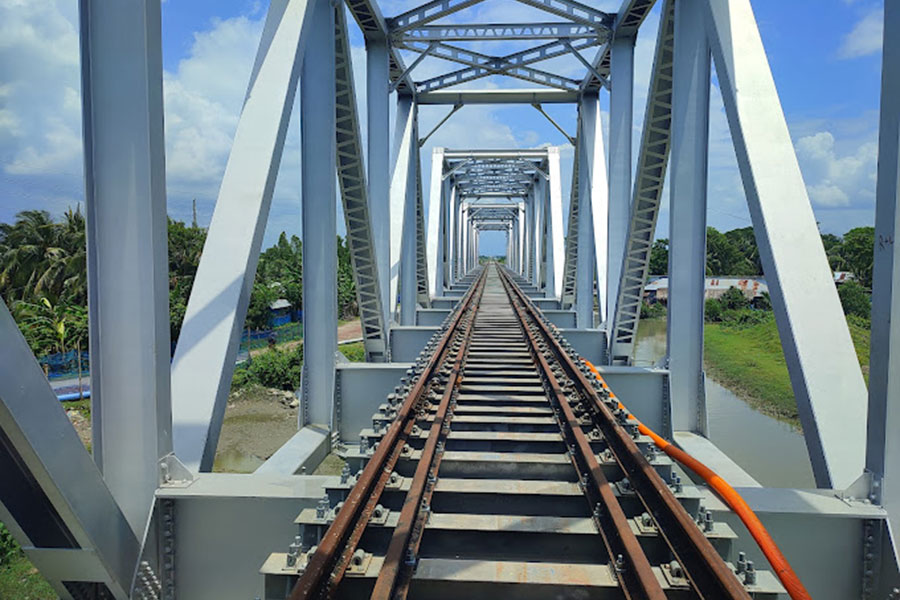
Published :
Updated :

Khulna-Mongla Rail Line will speed up the pace of economic development in the country, enhancing connectivity with India, Nepal and Bhutan.
Prime Minister Sheikh Hasina is expected to inaugurate the Khulna-Mongla Rail Line on November 11, as the construction work is about to be completed.
The construction work of 5.13-kilometre-long rail line on the Rupsha River is 100 per cent complete, while 99.5 per cent has been completed from Fultala Station to Mohammadnagar Station, Arifuzzaman, Project Director of the Khulna-Mongla Rail Line Project, told BSS, adding that the remaining works will be completed by October 31.
The construction work of 91-kilometre-long Fultala-Mongla Double Rail Line is being completed at a cost of Tk 42.61 billion. Besides, the project has nine platforms, 107 small bridges and nine underpasses.
After the Awami League government returned to state power in 2009, the Khulna-Mongla Rail Line project was approved by the Executive Committee of the National Economic Council (ECNEC) on December 21, 2010, and the project was taken jointly by the governments of Bangladesh and India.
Khulna-Mongla Railway Line will play a vital role in the development of the economy of the country’s south-western region after its opening, Railway Minister Nurul Islam Sujan told journalists during his visit in Khulna on October 14.
He also said that Bangladesh's connectivity with India, Nepal and Bhutan will be enhanced, and these three countries will get benefits from exporting and importing products at a lower cost by using the rail line.
Investors, exporters and importers are eagerly waiting to invest with a view to raising their business, he added.
While talking to BSS, Sheikh Ashrafuzzaman, President of Greater Khulna Unnyan Sangram Somonnay Committee said on Sunday, in respect of business perspective, the production cost will be minimised remarkably in mills and factories in the south-western region as the raw materials can be transported through the railway with lower expenses than earlier. Ultimately, the retail price of the products will decrease significantly, he added.
Mongla Port, the second-largest port in Bangladesh, will be the main route for rail and maritime trade in the south-western region. As a result, the country’s economic growth rate will increase, and investors will invest in their new businesses without hesitation, he added.


 For all latest news, follow The Financial Express Google News channel.
For all latest news, follow The Financial Express Google News channel.